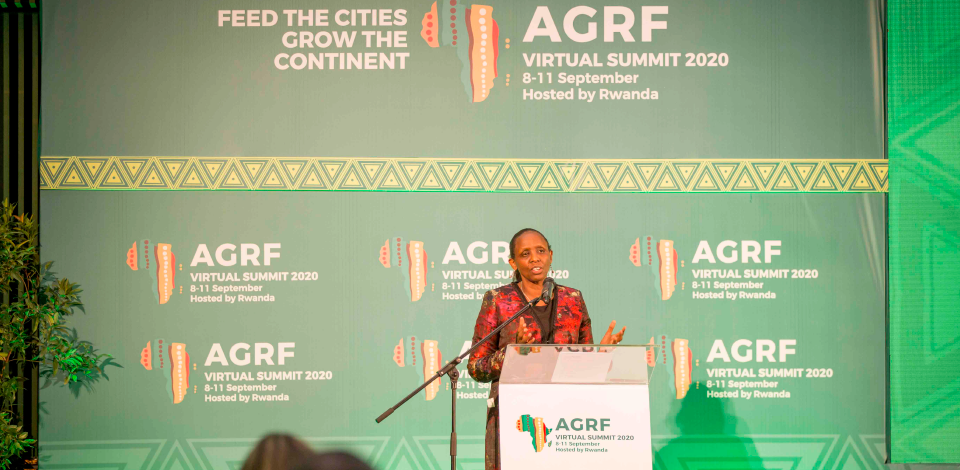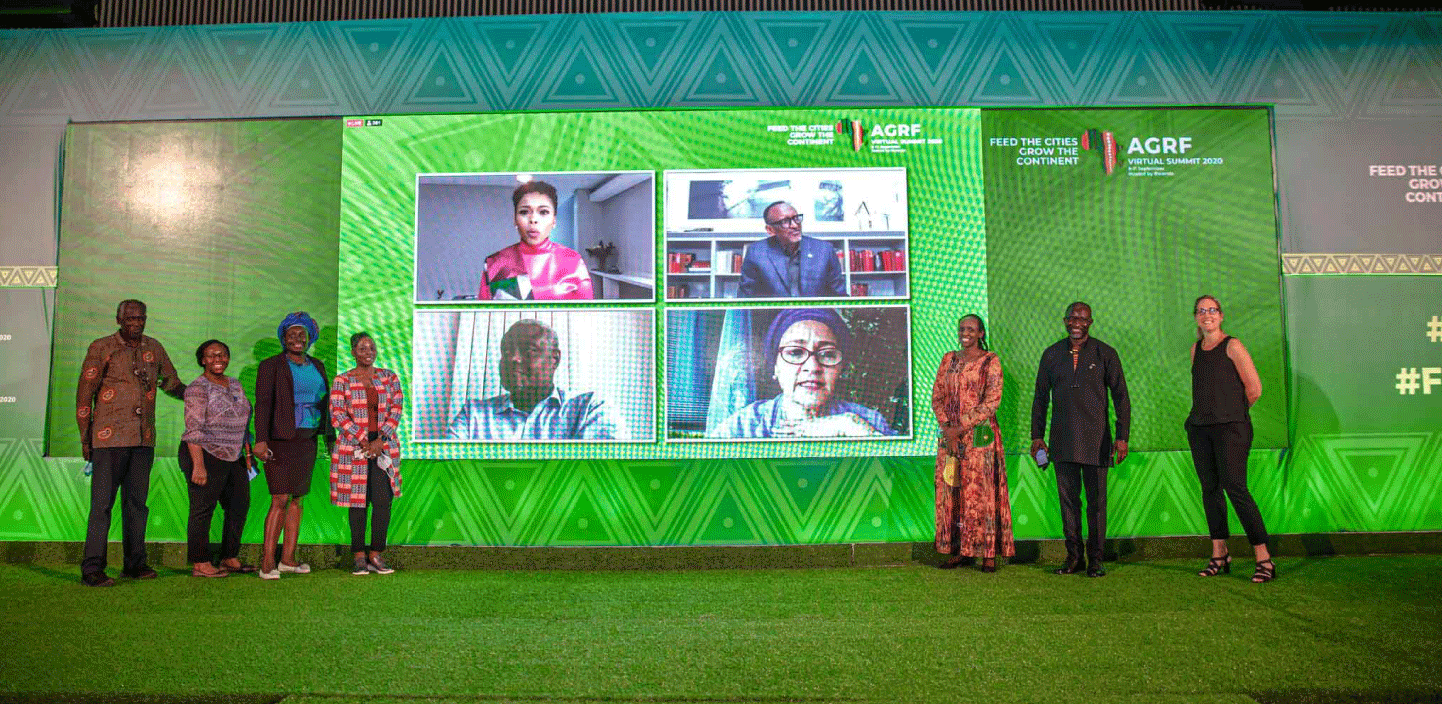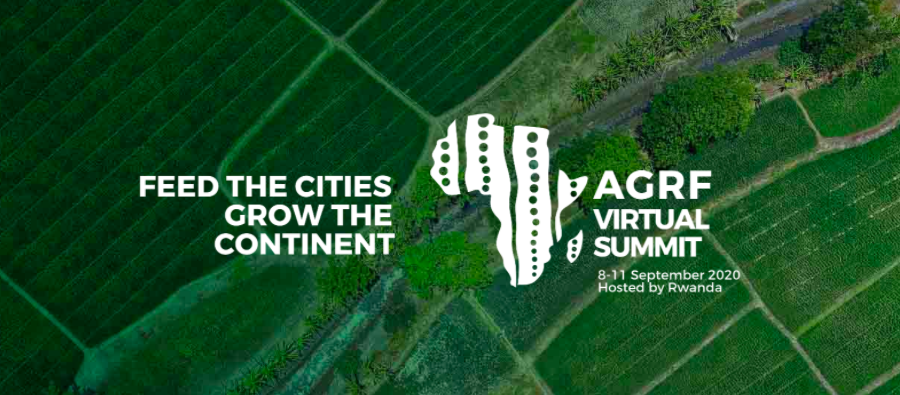Actions to strengthen Africa’s food systems in the aftermath of the Covid-19 crisis underpinned discussions at this year’s African Green Revolution Forum (AGRF).
Held in a virtual format for the first time this year due to the ongoing pandemic, the theme of the 2020 Summit was ‘Feed the Cities, Grow the Continent: Leveraging Urban Food Markets to Achieve Sustainable Food Systems in Africa’.
The event highlighted how the plight of urban areas has become tangible during the pandemic, as food system vulnerabilities have been exposed and major African cities that rely on imports continue to struggle with looming food insecurity following lockdowns. At the same time, cities across the continent face additional challenges – such as poverty and climate change – which exacerbate the situation.
This year’s Summit therefore centred around four themes – resilience, nutrition, food systems, and markets and trade – and comprised a mix of sessions including panel discussions, roundtables and deal rooms.
Food security strategies
Resilience was on the agenda from the start of the Summit, with UN Special Envoy to the 2021 Food Systems Summit and President of AGRA, Dr. Agnes Kalibata, kicking off the event in Kigali, Rwanda.
“We must bounce back better than ever, beyond just surviving the shocks we have witnessed,” said Dr. Kalibata in her opening address, emphasising that feeding cities will be crucial, as Africa’s pace of urbanisation is the fastest in the world.

Dr Agnes Kalibata discussing the findings of the 2020 Africa Agriculture Status Report.
This was underscored by the launch of the Africa Agriculture Status Report (AASR), which highlighted the importance of ensuring food security for urban consumers.
An overview of the report’s key findings was provided by Steven Haggblade, Professor of International Development at Michigan State University, who noted that Africa could become majority urban even before 2035, which is the official projection from the UN.
Inclusive approaches
A session on women-led strategies for agricultural resilience was chaired by Åslaug Marie Haga, Associate Vice-President of the International Fund for Agricultural Development (IFAD), who pointed out that crises do not affect everyone equally. Highlighting the vital role of women in African food systems – producing 80 per cent of the food in sub-Saharan Africa – she contended that empowering women will create more resilient, equitable and sustainable agricultural value chains.
The gender perspective was further explored in a panel discussion about advancing gender and nutrition, with speakers advocating for urban farming, a focus on food safety and sanitation, and scaling up innovation.
Meanwhile, farmers from across the continent had the chance to voice their experiences at the Farmers Forum, covering diverse topics from value chains to inequality, as well as the impact of the pandemic on the agricultural sector.
Dr. Theo de Jager, President of the World Farmers’ Organisation, concluded the session by calling for inclusivity.
“Leave no one behind, no one can be excluded. We must ensure we address poverty and hunger – and if any sector can create this wealth, it is indeed agriculture. Let’s make smallholders into profitable businessmen and businesswomen”, he said.
Advancing agriculture through innovation
Innovation took centre stage with the GoGettaz Agripreneur Prize Finale, where 12 young agripreneurs from 10 countries pitched their agribusiness ideas for the chance to win US $100,000.
This year’s prize winners were Daniella Kwayu, founder of the agriculture investment platform Phema Agris, and Moses Katala, co-founder of MagoFarm, a start-up that focuses on producing organic proteins from insects.
The 2020 Africa Food Prize was jointly awarded to Dr. André Bationo and Dr. Catherine Nakalembe for their contributions to improving food security across Africa.
Dr. Bationo was recognised for improving fertilizer micro-dosing technology and scaling up inventory credit systems in West Africa, while Dr. Nakalembe received the honour for improving smallholder farmers’ livelihoods by using satellite technology to harness data for better agricultural decision-making.
Looking to the future
The final days of the Summit explored markets and trade within food systems, concluding with a high-level Presidential panel discussion to summarise the resolutions from the week, featuring former and current heads of state and intergovernmental agency leaders.

The Presidential Summit was held during the last day of the AGRF.
H.E. Paul Kagame, President of the Republic of Rwanda, encouraged Africa’s youth to take the lead in shaping the continent’s agricultural future at the annual Youth Town Hall event. Continuing this call to action in his closing address at the high-level discussion, he also stressed the importance of ensuring linkages between rural farmers and urban markets.
“Agriculture is critical, and we must stay the course despite Covid-19. We will need better collaboration on fiscal space, and we need to maximise the opportunities around technology, youth, gender and the African Continental Free Trade Area,” he said.
The tenth annual AGRF Summit attracted more than 10,400 delegates from 150 countries, including six current African heads of state, and was co-hosted by the Government of Rwanda and the AGRF Partners Group.



